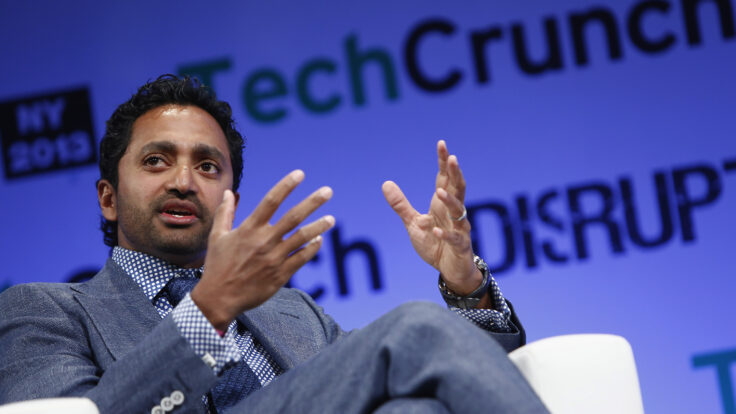|
Good evening!
Hello, and welcome back to Tomorrow Will Be Worse! It’s so quiet in Washington right now. The swamp slumbers during these days between Christmas and New Year’s, but we at Puck never sleep. So we’re bringing you a conversation between me and Jon Kelly, our co-founder, editor-in-chief, and, more importantly, my friend. Before you read, though, I’d like to thank you for subscribing, and to remind you, if you haven’t yet, to subscribe to Puck.
And now, without further ado, my conversation with Jon.
Year-end reflections on the political-media industrial complex, Biden’s health secret, Harris’s 2024 odds, and Putin’s next move. Jon Kelly: Julia, you wrote a great piece over the summer about the mild dystopia engulfing the D.C. media in the post-Trump era. In the last week or so, both the Journal and AP have published significant pieces confirming what we already presumed—Americans’ appetite for political news, once the coin of the realm, has faded considerably.
I know that some of your sources expressed relief at no longer being beholden to Trump’s Twitter feed. But I presume many others—especially the journalists who tied their identity to covering the 46th president—are worried about this economic chill.
Julia Ioffe: Oh, for sure. What you saw among journalists in the first few months of Joe Biden’s presidency was this mix of relief and nostalgia. Relief at having their weekends back, relief at not worrying that the President of the United States of America will tweet-create three new news cycles while they were in the shower, relief at not having to deal with the most insane and corrupt presidency in recent memory—and one that vilified and promoted violence against them. And nostalgia for, well, all of those same things. The Trump presidency was a total shitshow, but it was also the best and unceasingly dominant story in the U.S. It was exciting to cover Trump, it was often easy to cover Trump—unlike the Biden White House, his administration leaked like the Titanic—and it was a system of instant gratification: every scooplet went absolutely viral and reporters quickly became #resistance celebrities. Readers and viewers were absolutely hooked, and ratings and traffic were always somewhere in the stratosphere.
Now, we’re back to normal in more ways than one. The Biden administration hasn’t really had any scandals, no matter how hard the right wing tries with stories about Hunter Biden. The administration’s press strategy has been very disciplined and largely free of leaks. The historically gaffe-prone president himself has given very few interviews—and regular interviews, each of which featured a half dozen jaw-droppers, were one way Trump kept the news cycle spinning on his own terms.
Washington, itself, is back to its normal business of haggling over legislation, which can be quite procedural, legalistic, and, well, boring. It’s something we’ve forgotten about Washington since Trump bounded into the presidential race in 2015 and set our informational universe alight. Even the pandemic, now two years old, has become kind of boring. The waxing and waning of various waves and variants has become a fairly predictable and far less terrifying process. And all of us, both news producers and news consumers, are more than a little exhausted.
The soggy viewership and readership numbers reflect that. And legacy media companies, everyone from CNN to the New York Times, are back to contending with the reality they were grappling with before the Trump boom: How can media survive and prosper in the 21st century? It’s not a question they have found a very satisfying answer to. The Trump circus merely masked the problem...
FOUR STORIES WE'RE TALKING ABOUT AMC's C.E.O. was given an extraordinary lifeline—which he used to benefit himself, mostly. MATT BELLONI Joe Biden's staggering unpopularity among younger voters suggests that Democrats don't have any idea what matters to their kids. PETER HAMBY Many of the hopes for a resurgent 2021 in the media business didn’t come to pass, but the year was hardly a disaster. BRIAN MORRISSEY The Athletic has entered exclusive deal negotiations to sell to the Times. Should it? DYLAN BYERS
|
-
Join Puck
Directly Supporting Authors
A new economic model in which writers are also partners in the business.
Personalized Subscriptions
Customize your settings to receive the newsletters you want from the authors you follow.
Stay in the Know
Connect directly with Puck talent through email and exclusive events.

















